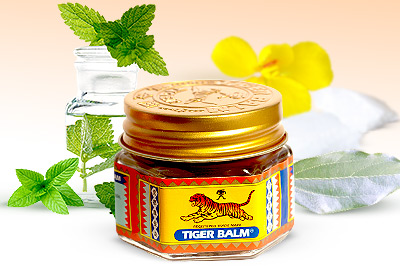Headaches are one of those symptoms of menopause that can disable women not only physically, but also mentally, often leaving them exhausted and impaired for days. Luckily, effective treatments for headaches that target their underlying cause are within reach.
Keep on reading to find out how to reduce headaches with easy and effective approaches so that you can part ways with this debilitating symptom at last!
Three Approaches to Treating Headaches
There are three approaches to reducing headaches that can be considered during menopause: (1) Lifestyle changes, (2) Alternative medicine, and (3) Medications, beginning from the safest, low-risk options and moving to more advanced treatments only if necessary.
Lifestyle Changes for Headaches Treatment

The first stage of headache relief involves making healthier lifestyle adjustments, which can bring significant improvements in terms of symptom severity. Although it entails the lowest risk, it does demand the most self-discipline.
Nutritious Diet
When it comes to the role of a woman's diet in the treatment of headaches, there are two key components to consider: the food she eats as well as her eating habits. Keeping up with regular, moderately-sized meals is as important as making sure they contain healthy fats, complex carbs, lean protein, and the following nutrients:
- Phytoestrogens are compounds found in plants that exert mild estrogenic effects in the body, thus helping to promote hormonal balance and relieve symptoms, including headaches.
Soy, barley, sesame, oats
- Magnesium is an important mineral for brain health; its deficiency has been linked to migraines with aura.1
Avocado, raspberries, peas, spinach
- Vitamin B2, or riboflavin, has shown to improve migraine symptoms and reduce the frequency of its attacks.2
Asparagus, almonds, eggs, mushroom
- Co-enzyme Q10 has been scientifically proven to reduce the number and severity of migraines.3
Broccoli, soy, sesame seeds, chicken
Additionally, certain substances in food, such as aspartame or monosodium glutamate, are often reported as headache triggers. As such, it is worth keeping a food journal to identify potential triggers and eliminate them from one's diet.
Regular Exercise
Regular exercise triggers the release of pain-relieving endorphins, thus lowering the severity and frequency of headaches. It also helps control weight gain, release stress, and improve sleep disorders, all of which have been linked to causing migraines and other types of headaches.4,5,6
Amount: The general recommendation for middle-aged women is to engage in 150 minutes of moderate physical activity per week, or 75 minutes of intense exercise per week.7
Type: The best results in terms of reducing headaches are seen when a woman combines low-level aerobic workouts, like swimming or dancing, with muscle-strengthening exercises, like yoga or Pilates.
Useful tips: To avoid triggering headaches, it is key to exercise in well-ventilated spaces or outdoors, evade exercising after big meals, and start slowly in order to safely build up to the recommended weekly amount.
Precautions: Since engaging in strenuous exercise, such as heavy lifting or endurance training, can cause exertional headaches, it is important to keep exercise at low to moderate intensity.
Wholesome Habits
As a complement to a healthy diet and regular exercise, women can take advantage of various daily practices that can not only help them alleviate headaches, but also prevent them in the first place. Consider the following:
Lowering stress and promoting relaxation through breathing, meditation, or biofeedback are one of the best ways to manage headaches and reduce their frequency.8
Maintaining posture,including sitting straight, is key to preventing headaches as various postural patterns have been observed in people suffering from migraines and other types of headaches.9
Applying compresses to the head or temple area can serve as quick remedy for headaches. Opt for cold compresses for migraine headaches and warm compresses for tension headaches.10
Considering alternative therapies, such as acupuncture and massage therapy, can help as well since they have been scientifically proven to relieve various types of headaches and reduce their number.11,12
Quitting addictions to smoking and excessive alcohol drinking can dramatically reduce headaches as well as prevent them altogether.
Alternative Medicine for Headaches Treatment

The second stage of headache relief involves the use of alternative medicine, most popularly herbal supplements. They cause virtually no side effects, and they relieve headaches by tackling their root cause, hormonal imbalance.
There are two types of herbal supplements that can be included in one's headaches treatment plan: phytoestrogenic and hormone-regulating supplements.
Phytoestrogenic Supplements
Phytoestrogenic supplements, like red clover, contain phytoestrogens, which are plant-based compounds with estrogenic activities. When they enter the body, they mimic estrogen, which helps balance its levels as well as those of other reproductive hormones, ultimately relieving headaches. However, their extended use is not recommended since they can make the body less capable of producing its own hormones, resulting in a hormonal decline in the long run.
Hormone-Regulating Herbal Supplements
Hormone-regulating supplements, like Macafem, do not supply the body with outside hormones. Instead, they contain beneficial alkaloid compounds that nourish the endocrine glands, stimulating their own hormone production and, thus, relieving headaches. Consequently, these supplements can be used long-term and are considered one of the safest treatments for headaches and other menopausal symptoms.
From Nature and Health Magazine, Dr. Chacon says:
"Macafem's nutrients help restore natural hormones in women. Unlike hormone drugs, which are basically resumed in taking synthetic hormones, Macafem acts totally different in your body. It nourishes and stimulates your own natural hormone production by inducing the optimal functioning of the pituitary and endocrine glands." Click on the following link to learn more about Macafem.Women often find that combining lifestyle changes and herbal supplements is a sufficient approach to treating headaches safely and effectively. However, more conventional treatments - such as medications or surgery - might be necessary for severe symptoms.
Conventional Medicine for Headaches Treatment

The third stage of headaches relief-medications or surgery - involves the highest cost and the highest risks. However, because some of those treatments may cause side effects, their use should be evaluated on an individual basis.
Two types of conventional headaches treatments at women's disposal include medications and surgery:
Medications
There is a wide variety of medications for headaches according to their cause, severity, location, duration, and other characteristics. They are mainly oriented towards relieving symptoms and preventing subsequent episodes.
Over-the-counter pain relievers - such as ibuprofen, acetaminophen, or aspirin - are the most commonly reached for medications for acute or occasional headaches.
Prescription pain relievers - such as triptans or, sometimes, opiates - might be given for migraines and tension headaches treatment.
Other medications may include antidepressants, anticonvulsants, or calcium channel blockers. They can be prescribed to relieve or prevent various kinds of headaches, including migraines and intense tension headaches.
- Hormone-replacement therapy (HRT) was once the most popular treatment for menopause symptoms, including headaches. It supplies the body with synthetic hormones to promote hormonal balance and alleviate symptoms. While effective, HRT use has been linked to serious side effects and certain health risks, as shown in the studies below.
Surgery
How to reduce headaches can also consist of surgical interventions, although they are generally considered a last resort option for severe migraines. They might consist of surgical decompression of the nerves that can be the cause of migraines, such as the supraorbital nerve or the occipital nerve.
The aforementioned three stages of headaches treatment may be used separately or in combination as necessary to manage current symptoms. During the menopausal transition, women often relieve symptoms with lifestyle adjustments and herbal supplements without having to rely on conventional treatments.
A Safe Way of Treating Headaches
Implementing Lifestyle Changes:
- Eating foods rich in phytoestrogens, magnesium, and coenzyme Q10
- Keeping up with regular, low- to moderate-intensity exercises
- Lowering stress and promoting relaxation with conscious breathing
- Quitting smoking and alcohol as well as maintaining good posture
And Taking Herbal Supplements:
- Phytoestrogenic herbal supplements, like red clover
- Or natural hormone-regulating supplements, like Macafem
Sources
- American Massage Therapy Association. (2014). Massage and Headache Relief. Retrieved May 12, 2020 fromhttps://www.amtamassage.org/publications/massage-therapy-journal/massage-and-headache-relief/
- American Migraine Foundation. (2016). Commonly Used Acute Migraine Treatments. Retrieved May 12, 2020 fromhttps://americanmigrainefoundation.org/resource-library/commonly-used-acute-migraine-treatments/
- American Migraine Foundation. (2015). Effects of Exercise on Headaches and Migraines. Retrieved May 12, 2020 fromhttps://americanmigrainefoundation.org/resource-library/effects-of-exercise-on-headaches-and-migraines/
- Cleveland Clinic. (2014). Headache Medications. Retrieved May 12, 2020 fromhttps://my.clevelandclinic.org/health/drugs/9652-headache-medications
- Harvard Health Publishing. (2018). Acupuncture for headache. Retrieved May 12, 2020 fromhttps://www.health.harvard.edu/blog/acupuncture-for-headache-2018012513146
- Mayo Clinic. (2019). Tension Headaches. Retrieved May 12, 2020 from https://www.mayoclinic.org/diseases-conditions/tension-headache/diagnosis-treatment/drc-20353982
- Mayo Clinic. (2019). Headaches: Treatment depends on your diagnosis and symptoms. Retrieved May 12, 2020 from https://www.mayoclinic.org/diseases-conditions/chronic-daily-headaches/in-depth/headaches/art-20047375
- National Center for Biotechnology Information. (2009). Foods and Supplements in the Management of Migraine Headaches. Retrieved May 12, 2020 fromhttps://pubmed.ncbi.nlm.nih.gov/19454881/
- Stat Pearls. (2019). Migraine Surgical Interventions. Retrieved May 12, 2020 from https://www.ncbi.nlm.nih.gov/books/NBK525950/
- University of Wisconsin. (2019). Headache Prevention: Posture and Body Mechanics.Retrieved May 12, 2020 fromhttps://www.uwhealth.org/health/topic/special/headache-prevention-posture-and-body-mechanics/not46139.html
- University of Wisconsin. (2017). Surgery for Migraine Headaches. Retrieved May 12, 2020 fromhttps://www.surgery.wisc.edu/2017/11/09/surgery-for-migraine-headaches/
Footnotes:
- Journal of Neural Transmission. (2012). Why All Migraine Patients Should Be Treated with Magnesium. Retrieved May 12, 2020 from https://pubmed.ncbi.nlm.nih.gov/22426836/
- The Journal of headache and Pain. (2015). Improvement of migraine symptoms with a proprietary supplement containing riboflavin, magnesium and Q10: a randomized, placebo-controlled, double-blind, multicenter trial. Retrieved May 12, 2020 from https://www.ncbi.nlm.nih.gov/pmc/articles/PMC4393401/
- Cephalalgia. (2002). Open Label Trial of Coenzyme Q10 as a Migraine Preventive. Retrieved May 12, 2020 from https://pubmed.ncbi.nlm.nih.gov/11972582/
- American Migraine Foundation. (2015). Obesity and Migraine. Retrieved May 12, 2020 from https://americanmigrainefoundation.org/resource-library/obesity-and-migraine/
- American Migraine Foundation. (2019). Sleep disorders and headache. Retrieved May 12, 2020 from https://americanmigrainefoundation.org/resource-library/sleep/
- Mayo Clinic. (2019). Headaches: Reduce stress to prevent the pain. Retrieved May 12, 2020 from https://www.mayoclinic.org/diseases-conditions/tension-headache/in-depth/headaches/art-20046707
- American Heart Association. (2018). Recommendations for Physical Activity in Adults and Kids. Retrieved May 12, 2020 from https://www.heart.org/en/healthy-living/fitness/fitness-basics/aha-recs-for-physical-activity-in-adults
- Cleveland Clinic. (2012). Headache Management: Relaxation and Other Alternative Approaches. Retrieved May 12, 2020 from https://my.clevelandclinic.org/health/articles/11664-headache-management-relaxation-and-other-alternative-approaches
- Brazilian Journal of Physical Therapy. (2014). Body posture changes in women with migraine with or without temporomandibular disorders. Retrieved May 12, 2020 from https://www.ncbi.nlm.nih.gov/pmc/articles/PMC4183235/
- National Headache Foundation. (n.d.). Hot and Cold Packs/Showers. Retrieved May 12, 2020 from https://headaches.org/2007/10/25/hot-and-cold-packs-showers/
- Cochrane Database of Systematic Reviews. (2017). Acupuncture for the prevention of tension-type headaches. Retrieved May 12, 2020 from https://www.ncbi.nlm.nih.gov/pmc/articles/PMC4955729/
- American Journal of Public Health. (2002). Massage Therapy and Frequency of Chronic Tension Headaches. Retrieved May 12, 2020 from https://www.ncbi.nlm.nih.gov/pmc/articles/PMC1447303/
- JAMA. (2002). Risks and benefits of estrogen plus progestin in healthy postmenopausal women: principal results from the Women's Health Initiative randomized controlled trial. Retrieved May 12, 2020 from https://www.ncbi.nlm.nih.gov/pubmed/12117397
- The Lancet. (2019). Type and timing of menopausal hormone therapy and breast cancer risk: individual participant meta-analysis of the worldwide epidemiological evidence. Retrieved May 12, 2020 from https://www.thelancet.com/journals/lancet/article/PIIS0140-6736(19)31709-X/fulltext



